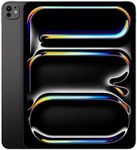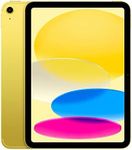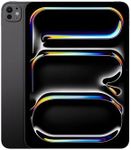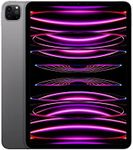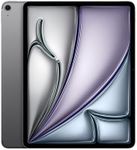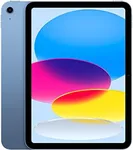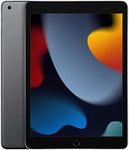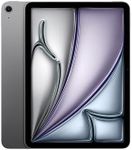Buying Guide for the Best ipads
Choosing the right iPad can make a big difference in how much you enjoy using it, whether it's for work, school, entertainment, or creativity. To find the best fit, it's important to think about what you'll use your iPad for most often. Some people need a device mainly for browsing and streaming, while others want to draw, edit photos, or run demanding apps. By understanding the key features and how they relate to your needs, you can make a smart choice that will serve you well for years.Display SizeDisplay size refers to the diagonal measurement of the iPad's screen, usually given in inches. This is important because it affects how portable the device is and how comfortable it is to use for different tasks. Smaller screens (around 8-9 inches) are easier to carry and hold for long periods, making them great for reading or travel. Medium sizes (about 10-11 inches) offer a balance between portability and a comfortable viewing area, suitable for most users. Larger screens (12 inches or more) are best for multitasking, drawing, or watching movies, but they can be heavier and less convenient to carry. Think about where and how you'll use your iPad most to decide which size fits your lifestyle.
Storage CapacityStorage capacity is the amount of space available on the iPad to save apps, photos, videos, and other files. This is important because running out of space can limit what you can do. Lower storage options (like 64GB) are fine if you mostly stream content and use cloud storage. Mid-range options (128GB to 256GB) are good for people who want to keep more apps, photos, and some videos on their device. Higher capacities (512GB or more) are best for those who work with large files, like videos or high-resolution photos, or want to store lots of games and media offline. Consider how much you save on your current device and whether you plan to keep your iPad for several years.
Processor PerformanceThe processor is the 'brain' of the iPad and determines how fast and smoothly it runs apps and handles multitasking. This is important if you want to use demanding apps, play advanced games, or do creative work like video editing. Basic processors are fine for web browsing, streaming, and light tasks. Mid-level processors handle most apps and some creative work without issues. High-end processors are designed for professionals or users who want the fastest performance for things like 3D design or editing large videos. Think about the types of apps you use and whether you want your iPad to stay fast as apps get more advanced in the future.
Apple Pencil and Keyboard SupportSome iPads work with accessories like the Apple Pencil and external keyboards, which can turn your device into a tool for drawing, note-taking, or even a laptop replacement. This is important if you plan to use your iPad for school, work, or creative projects. Not all iPads support the latest versions of these accessories, so check compatibility if this matters to you. If you just want to browse and watch videos, you may not need these features, but if you want to write, draw, or type a lot, make sure your iPad supports the right accessories.
Battery LifeBattery life tells you how long the iPad can run on a single charge. This is important if you plan to use your iPad away from a charger, like during travel or long days at school. Most iPads offer similar battery life, but larger screens or more powerful processors can use more energy. If you need your iPad to last all day, look for models known for efficient battery use, and consider how often you'll be able to recharge.
Connectivity (Wi-Fi vs. Cellular)iPads come in versions that connect to the internet using only Wi-Fi or both Wi-Fi and cellular networks (like 4G or 5G). This is important if you want to use your iPad on the go, away from Wi-Fi networks. Wi-Fi-only models are fine if you'll mostly use your iPad at home, school, or work. Cellular models let you access the internet almost anywhere, but require a separate data plan. Think about where you'll use your iPad and whether you need constant internet access.
Camera QualityThe camera quality on an iPad affects how good your photos, videos, and video calls look. This is important if you plan to use your iPad for photography, video recording, or frequent video chats. Basic cameras are fine for scanning documents or occasional calls. Higher-quality cameras are better for creative work or if you want to take lots of photos and videos. Consider how often you'll use the camera and for what purpose.
